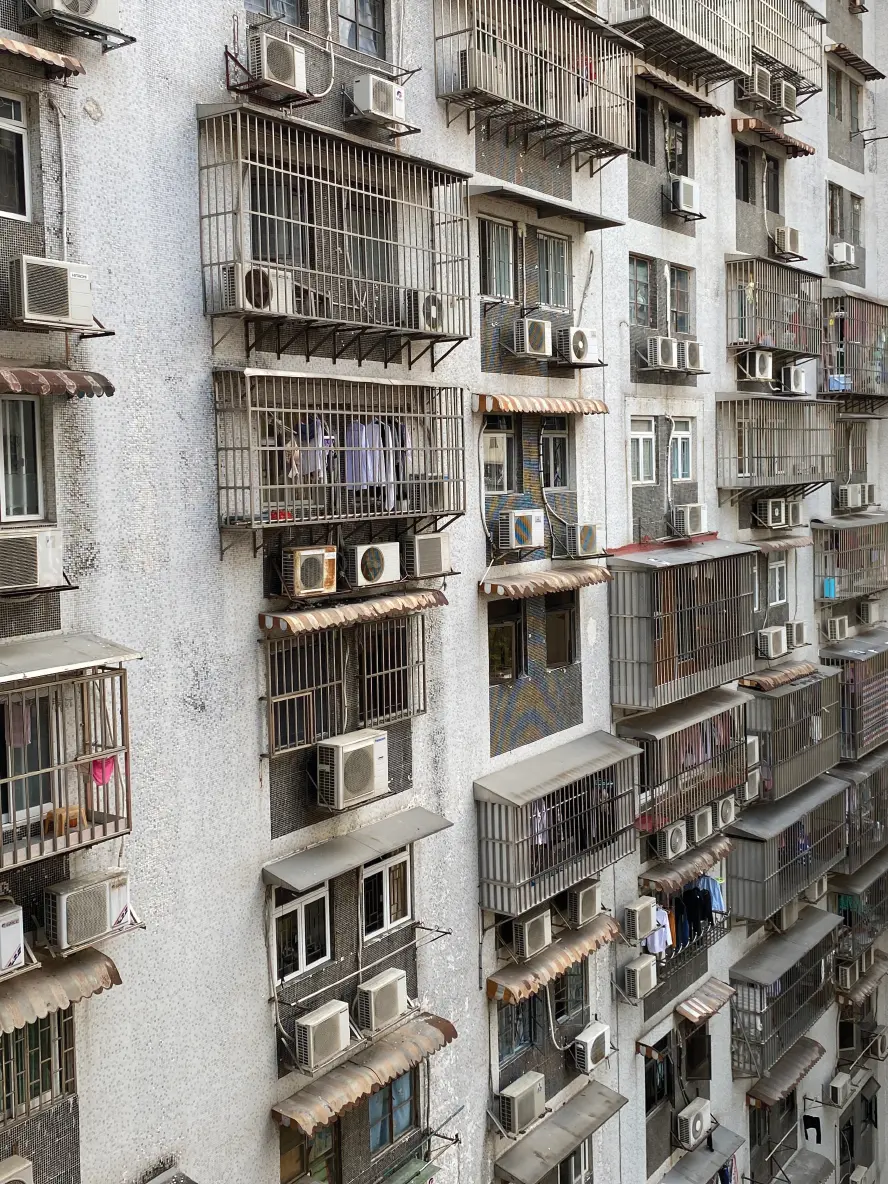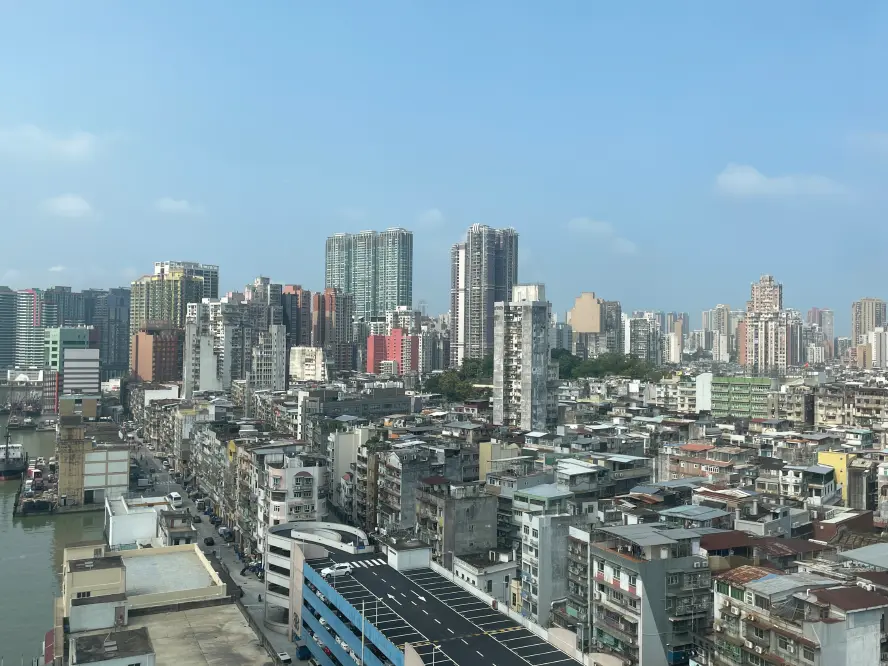Macau’s gross gaming revenues have risen steadily amid gradual economic recovery, yet the real estate market has suffered sustained declines in both value and transaction volumes. What’s behind this disparity?
Data from Macau’s Financial Services Bureau for the first half of August 2025 paints a grim picture for the city’s residential property sector: only 118 units were sold in the first 15 days of August, with an average price of MOP$78,990 (US$9,860) per square meter. This marks a sharp decline from the same period in 2019, when 443 units were sold at an average price of MOP$119,351 (US$14,900) per square meter. Over the six-year period, property transactions have plummeted by roughly 275% and average prices by 30%. Even compared to the same pandemic-hit period in 2020, transactions are down 46% and prices by 20.7%.
In stark contrast, Macau’s gaming sector is on an upward trajectory. Gross Gaming Revenue (GGR) in August 2025 reached around MOP$22.2 billion (US$2.77 billion), a post-pandemic high, recovering to 91.3% of the same period in 2019. This divergence highlights that the real estate market has not only failed to bounce back from the pandemic but is sliding further into decline.
 Impact of mainland China’s policies
Impact of mainland China’s policies
Professor Jacky Yuk-Chow So, Chair Professor at the Faculty of Business Administration of Macau University of Science and Technology, told IAG that the gaming industry’s prosperity does not mirror Macau’s overall economic condition. The downturn in the real estate market (both commercial and residential sectors) is intertwined with multiple factors, including policies from mainland China and shifts in the gaming industry.
“The mainland’s real estate market has been hit hard by the ‘Three Red Lines’ policy and the Evergrande crisis, leading most investors to adopt a wait-and-see attitude toward Macau’s property market; the days of buying multiple units at once are gone,” So explained.
In 2020, the mainland government introduced a series of financial regulatory standards for real estate firms, including the “Three Red Lines” – designed to curb excessive leverage, reduce potential financial risks and stabilize the market. However, the policy pushed many mainland developers into liquidity crunches or even collapse, Evergrande Group being the most high-profile case.
Known as the “real estate meltdown” among mainland insiders, the crisis has scared off wealthy mainland investors from entering the property market. Investor confidence in real estate has plummeted; coupled with the three-year pandemic that slowed mainland economic growth and rising unemployment, a “lying flat” trend (abstaining from homebuying, having children or carrier advancement) has emerged among the mainland’s younger generation – further exacerbating the real estate slump.
Gaming industry transformation and impact on real estate
Jacky So emphasized that the downturn in Macau’s real estate market is closely linked to the restructuring of the gaming industry.
“VIP players have nearly disappeared, replaced by mass market and premium mass market players. Their bets are nowhere near as large as the former VIPs,” he said.
In the past, top mainland VIP players would place bets worth tens of millions in Macau’s casinos, creating wealth for many locals. Their capital also flowed into Macau’s real estate market, driving up property prices consistently. Today, as the gaming industry shifts toward a healthier, mass market-focused model, the real estate sector – once reliant on capital inflows from VIP players – has lost its strong support.
Multiple factors have contributed to a decline in the valuation of commercial properties: the rise of mainland residents’ “northbound consumption” trend (spending in mainland cities or in the Greater Bay Area) and the upcoming year-end closure of satellite casinos. Worse still, the broader real estate downturn has led to a sharp drop in the value of commercial assets such as hotels.
For example, The 13 Hotel was sold for HK$600 million (US$77 million) in 2025 – a fraction of its 2024 asking price of HK$2.4 billion (US$309 million).
 Diversification: The only path to a revitalized investment wave
Diversification: The only path to a revitalized investment wave
Macau’s real estate predicament stems from multiple structural factors: external economic changes, coupled with internal challenges such as consumption outflow and shifts in the gaming development model.
Jacky So admitted that Macau’s over reliance on the gaming industry to drive its overall economy has resulted in it lacking industrial diversification. This has left the real estate market unable to withstand external shocks. For Macau to revitalize and spark a new investment boom, an appropriate diversification plan is essential. While this process will involve challenges and growing pains, it is the only path to long-term sustainable economic development for Macau.
Macau’s best days are behind it. The city used to depend on gaming, but now that the industry is on a healthier track, Macau needs to find other new industries to help lead it forward.




























